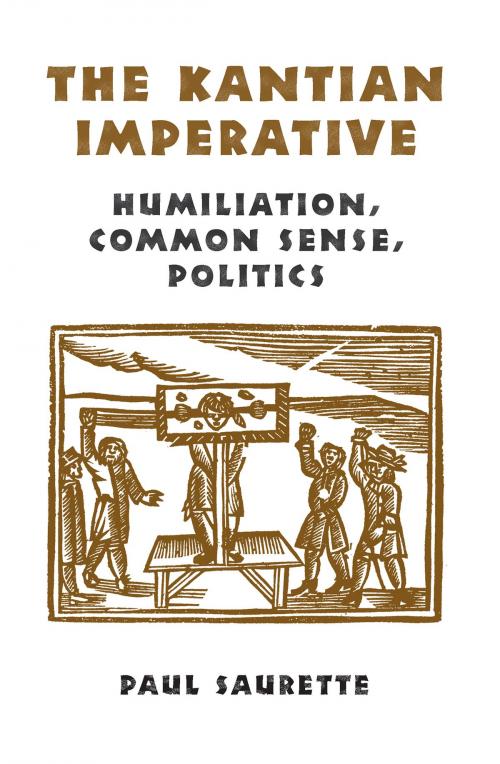The Kantian Imperative
Humiliation, Common Sense, Politics
Nonfiction, Religion & Spirituality, Philosophy, Political, Ethics & Moral Philosophy, Social & Cultural Studies, Political Science, Politics, History & Theory| Author: | Paul Saurette | ISBN: | 9781487592301 |
| Publisher: | University of Toronto Press, Scholarly Publishing Division | Publication: | August 13, 2005 |
| Imprint: | Language: | English |
| Author: | Paul Saurette |
| ISBN: | 9781487592301 |
| Publisher: | University of Toronto Press, Scholarly Publishing Division |
| Publication: | August 13, 2005 |
| Imprint: | |
| Language: | English |
Immanuel Kant's moral philosophy is almost universally understood as the attempt to analyse and defend a morality based on individual autonomy. In The Kantian Imperative, Paul Saurette challenges this interpretation by arguing that Kant's 'imperative' is actually based on a problematic appeal to 'common sense' and that it is premised on, and seeks to further cultivate and intensify, the feeling of humiliation in every moral subject.
Discerning the influence of this model on a wide variety of historical and contemporary political thought and philosophy and critical of its implications, Saurette explores its impact on the work of two seminal and contemporary thinkers in particular: Charles Taylor and Jürgen Habermas. Saurette also shows that an analysis of the Kantian imperative allows a better understanding of current political problems such as the U.S. torture scandal at Abu Ghraib in Iraq and broader post-9/11 U.S. foreign policy. The Kantian Imperative thus demonstrates that philosophy and political theory are as relevant to contemporary events as at any other time in history.
Immanuel Kant's moral philosophy is almost universally understood as the attempt to analyse and defend a morality based on individual autonomy. In The Kantian Imperative, Paul Saurette challenges this interpretation by arguing that Kant's 'imperative' is actually based on a problematic appeal to 'common sense' and that it is premised on, and seeks to further cultivate and intensify, the feeling of humiliation in every moral subject.
Discerning the influence of this model on a wide variety of historical and contemporary political thought and philosophy and critical of its implications, Saurette explores its impact on the work of two seminal and contemporary thinkers in particular: Charles Taylor and Jürgen Habermas. Saurette also shows that an analysis of the Kantian imperative allows a better understanding of current political problems such as the U.S. torture scandal at Abu Ghraib in Iraq and broader post-9/11 U.S. foreign policy. The Kantian Imperative thus demonstrates that philosophy and political theory are as relevant to contemporary events as at any other time in history.















